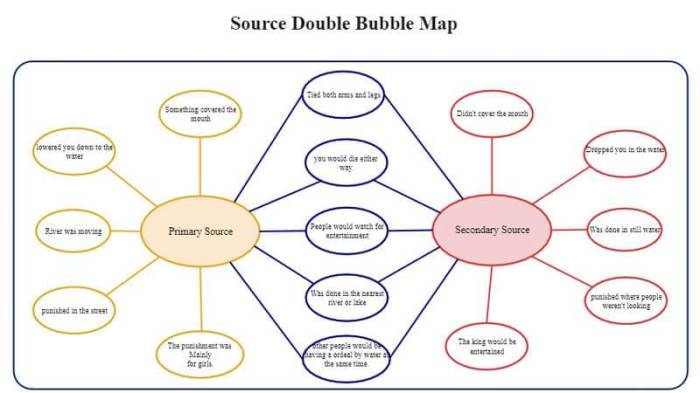Pros and cons of referendums – As referendums take center stage in democratic processes worldwide, it is imperative to examine their multifaceted nature. This comprehensive analysis delves into the advantages and disadvantages of referendums, providing a nuanced understanding of their potential impact on governance.
Referendums, direct votes by citizens on specific policy issues, have garnered both praise and criticism. While they offer the allure of increased citizen participation and democratic legitimacy, they also raise concerns about populism and the tyranny of the majority. This exploration navigates these complexities, offering a balanced perspective on the role of referendums in modern democracies.
Referendums

Referendums are a form of direct democracy in which citizens are given the opportunity to vote on specific policy proposals or laws. They have a long history, dating back to ancient Greece, where they were used to make important decisions affecting the entire community.
Today, referendums are used in a variety of countries around the world. They can be either mandatory or optional, and they can be used to approve or reject laws, constitutional amendments, or other policy initiatives.
Types of Referendums
There are several different types of referendums, each with its own purpose and characteristics.
- Mandatory referendumsare required by law to be held on certain issues, such as constitutional amendments or changes to the electoral system.
- Optional referendumsare held at the discretion of the government or legislature. They can be used to gauge public opinion on a particular issue or to give citizens a direct say in policymaking.
- Confirmatory referendumsare held after a law or policy has been passed by the legislature. They give citizens the opportunity to approve or reject the measure before it takes effect.
- Recall referendumsallow citizens to vote to remove an elected official from office before the end of their term.
Pros of Referendums

Referendums offer several advantages, including enhancing democratic processes, promoting transparency, and empowering citizens in decision-making.
Successful Referendums
- The 1998 Good Friday Agreement referendum in Northern Ireland, which resulted in the establishment of a power-sharing government and a significant reduction in political violence.
- The 2015 same-sex marriage referendum in Ireland, which led to the legalization of same-sex marriage and was hailed as a landmark moment for LGBTQ+ rights.
Increased Citizen Participation and Empowerment
Referendums provide citizens with a direct voice in shaping their society. By allowing them to vote on specific issues, referendums increase civic engagement and foster a sense of ownership over public affairs.
Referendums, with their power to give citizens a direct say in decisions, have both advantages and disadvantages. However, some may argue that a better way to harness the collective wisdom of the people is through initiatives like si ni san american dragon . Nevertheless, referendums remain a valuable tool for exploring public opinion and fostering a sense of democratic participation, even if their outcomes may not always reflect the most well-informed or comprehensive perspective.
Transparency and Accountability
Referendums force governments to be transparent about their policies and decisions. Citizens can scrutinize proposals, engage in public debates, and hold their leaders accountable for the outcomes.
Cons of Referendums: Pros And Cons Of Referendums

While referendums can be seen as a way to give citizens a direct say in how they are governed, there are also some potential drawbacks to consider.
Risk of Populism and Tyranny of the Majority
One concern is that referendums can be susceptible to populism, where decisions are made based on popular appeal rather than sound policy. This can lead to the “tyranny of the majority,” where the interests of minority groups are ignored or trampled upon.
Manipulation by Special Interests and Demagogues
Another concern is that referendums can be manipulated by special interests or demagogues who use emotional appeals and misinformation to sway public opinion. This can lead to outcomes that are not in the best interests of the public as a whole.
Limitations in Addressing Complex Policy Issues
Referendums are also limited in their ability to address complex policy issues that require specialized knowledge and expertise. In such cases, the public may not have the necessary information or understanding to make informed decisions.
Case Studies

Referendums have been used throughout history to make important decisions, with varying degrees of success. Some referendums have led to positive outcomes, while others have had negative consequences. By examining case studies of significant referendums, we can learn from their successes and failures to improve the design and implementation of future referendums.
Brexit Referendum (2016)
The Brexit referendum was a significant event in British history. In June 2016, the British public voted to leave the European Union (EU). The referendum was closely contested, with 52% voting to leave and 48% voting to remain.The Brexit referendum has had a number of significant impacts.
It has led to the UK’s withdrawal from the EU, which has had a major impact on the UK’s economy and its relationship with other European countries. The referendum has also led to increased political polarization in the UK, with the two main political parties, the Conservative Party and the Labour Party, taking opposing positions on Brexit.The
Brexit referendum is a complex event with many different factors contributing to its outcome. Some of the key factors include:
- The rise of populism and nationalism in the UK
- Public dissatisfaction with the EU
- The perceived failure of the UK government to address the concerns of ordinary people
The Brexit referendum is a reminder of the power of referendums to bring about major change. It is also a reminder of the importance of careful planning and implementation of referendums, to ensure that they are fair and democratic and that the results are respected.
Best Practices for Referendums

Referendums can be a powerful tool for democratic decision-making, but their effectiveness depends on careful design and implementation. Here are some best practices to maximize the impact of referendums:
Clear and Unbiased Ballot Language
Voters must understand the issue being voted on to make informed decisions. Ballot language should be clear, concise, and unbiased. It should avoid technical jargon or confusing wording that could lead to misunderstandings. The question should be framed in a neutral manner, without leading or coercive language.
Education and Public Engagement, Pros and cons of referendums
Informed decision-making requires an educated electorate. Governments and civil society organizations have a responsibility to provide voters with accurate information about the referendum topic. Public engagement initiatives, such as debates, forums, and educational campaigns, can help foster understanding and encourage informed participation.
Role of Independent Commissions
In some cases, independent commissions may be established to oversee referendums. These commissions can ensure the fairness and impartiality of the process, from drafting the ballot language to certifying the results. They can also provide independent analysis and guidance to voters.
Thresholds for Approval
Setting appropriate thresholds for approval can help ensure that referendum outcomes reflect the will of the majority. While simple majority (50% + 1) is often used, other thresholds, such as supermajorities or quorum requirements, may be considered to prevent hasty or ill-considered decisions.
Timing and Context
The timing and context of a referendum can influence its outcome. Holding a referendum during a period of heightened public interest or in conjunction with other elections can increase turnout and engagement. However, it is important to avoid holding referendums too frequently, as this can lead to voter fatigue or apathy.
Respecting Referendum Outcomes
Once a referendum is held, it is crucial to respect the outcome. Governments should implement the results of successful referendums, even if they do not align with their own preferences. This helps maintain public trust in the democratic process and demonstrates that referendums are not merely symbolic exercises.By
following these best practices, referendums can be a valuable tool for democratic decision-making. They can empower citizens, enhance public discourse, and contribute to the legitimacy and effectiveness of government.
Top FAQs
What are the key advantages of referendums?
Referendums enhance democratic participation, empowering citizens to directly influence policy decisions. They can also foster transparency and accountability in government, as elected officials become more responsive to public opinion.
What are the potential drawbacks of referendums?
Referendums may be susceptible to manipulation by special interests or demagogues, leading to outcomes that do not reflect the genuine will of the people. They can also be limited in addressing complex policy issues, which often require specialized knowledge and expertise.
